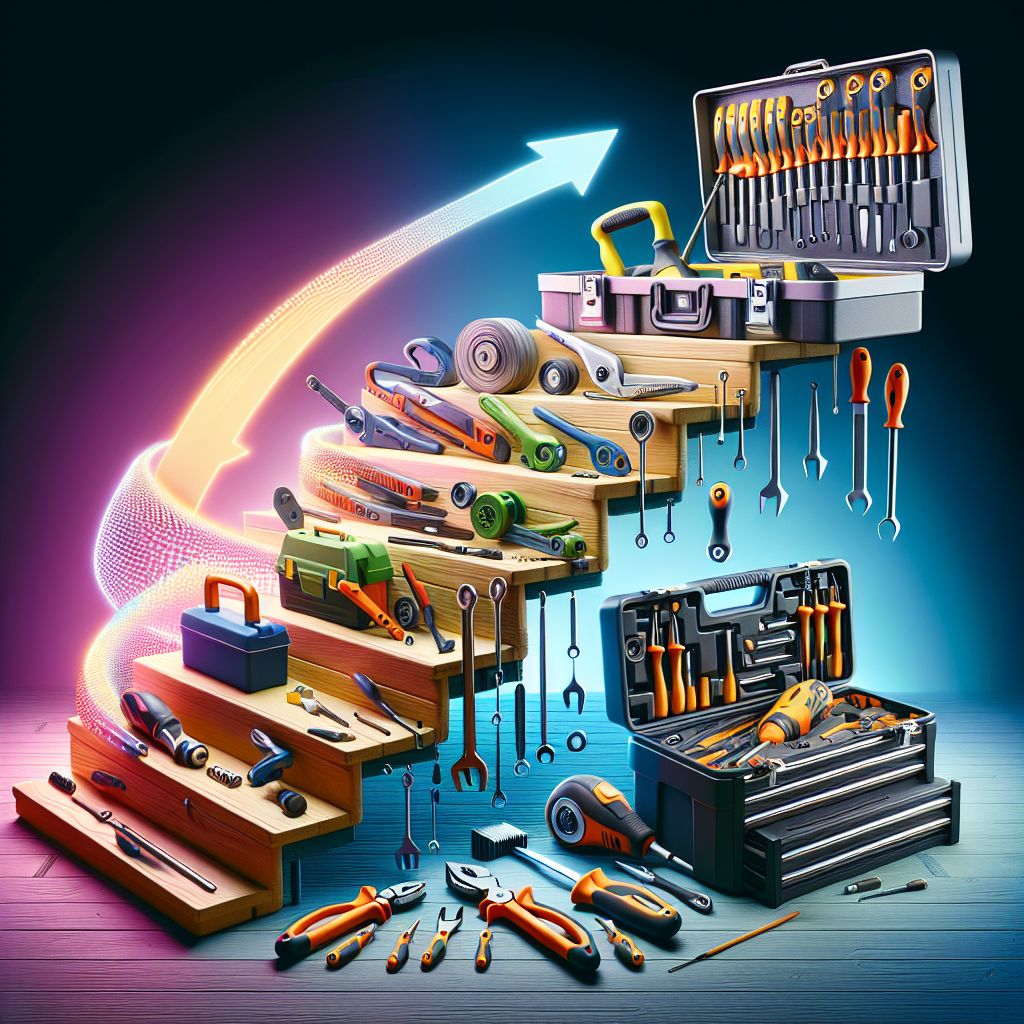In the realm of craftsmanship—be it woodworking, metalworking, or any DIY endeavor—the choice of tools plays a crucial role in determining the quality of your output. As hobbyists advance in skill and ambition, they often face a pivotal decision: should they stick with basic tools or move up to professional-grade equipment? This article delves into the journey from DIY to professional tool usage, outlining the reasons for the transition, factors to consider, and tips for making this shift successfully.
Recognizing the Need for an Upgrade
Quality of Work
A primary driver for many DIY enthusiasts contemplating an upgrade is the desire for enhanced quality. Professional-grade tools are generally designed to higher standards, providing increased precision, durability, and efficiency. This results in improved outcomes for your projects, elevating both their aesthetic appeal and structural strength.
Time Efficiency
High-quality tools also contribute to time savings. For example, a superior saw will deliver cleaner and quicker cuts than its basic counterpart, significantly minimizing the time dedicated to each project. This efficiency enables serious hobbyists to tackle more intricate projects or accomplish more work in a shorter span.
Safety Considerations
As skills enhance, so does the complexity of the projects undertaken. Professional tools often include design features and safety mechanisms that help prevent accidents. Safety should always be paramount, particularly when operating powerful equipment.
Evaluating Your Current Tool Inventory
Before you embark on an upgrade, take stock of your current tools. Assess what is effective, what falls short, and which tools are most frequently used. This evaluation will aid you in prioritizing purchases and avoiding redundant investments.
Categories of Tools to Explore
-
Hand Tools: While many DIY tasks depend on basic hand tools, investing in high-quality chisels, saws, and measuring devices can greatly enhance your craftsmanship.
-
Power Tools: Shifting to professional-grade power tools—like drills, saws, and sanders—can offer a significant performance upgrade. Seek out brands that are renowned for durability and precision.
- Workshop Essentials: An organized workspace is as critical as the tools themselves. Upgrading to professional-grade workbenches, clamps, and tool storage solutions can significantly improve your workflow.
Research and Selection Process
Conducting thorough research is vital when selecting professional-grade tools. Look for customer feedback, comparison videos, and expert advice. Consider attending trade shows or tool expos to try out equipment and engage with manufacturers.
Budgeting for Quality
Professional tools typically come with a higher price tag than DIY options, so it’s essential to budget carefully for your upgrades. Think about starting with a few essential tools rather than replacing your entire collection at once. Focus on the tools aligned with the projects you’re most passionate about.
Developing Your Skills
Transitioning to professional-grade tools often necessitates a change in technique. Many advanced tools include features that require a deeper understanding of craftsmanship. Dedicate time to learn how to use your new equipment safely and effectively. Consider enrolling in workshops, viewing online tutorials, or joining community classes.
Cultivating a Professional Mindset
Embracing a professional mindset involves committing to ongoing learning and improvement. This transition includes:
- Commitment to Quality: Always aim for the best results, no matter the project’s size.
- Attention to Detail: Develop a keen eye for precision—professional work thrives on fine details.
- Time Management: Treat your projects with the professionalism they deserve by planning realistically.
Maintaining Your Tools
Once you invest in professional-grade tools, proper maintenance is crucial. Regular cleaning, suitable storage, and adherence to manufacturer-recommended maintenance routines will prolong the life of your tools and ensure optimal performance.
Conclusion
The transition from DIY to professional-grade tools can be an exhilarating and fulfilling journey. It unveils a new realm of possibilities and elevates your craftsmanship. By selecting tools thoughtfully, enhancing your skills, and fostering a professional mindset, you will be well-prepared to tackle projects that showcase your developing expertise. Remember, every professional was once an amateur—embrace the learning journey and relish the craft!

